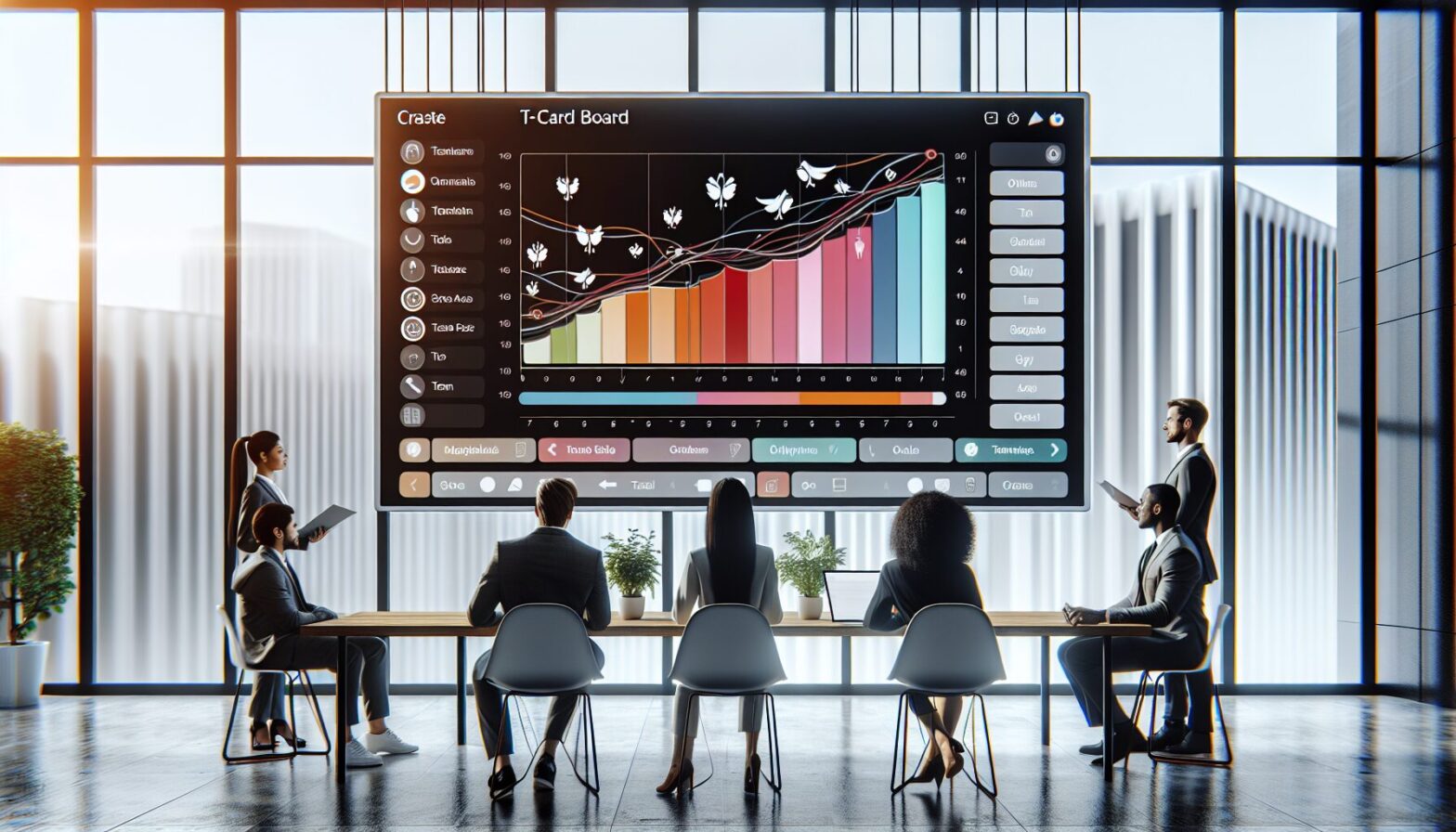Understanding the Online T-Card System and Its Unique Appeal
The online T-card system is an evolution of the traditional project management tool that uses physical T-shaped cards to track tasks across workflows. Digitally adapted, this system offers a visually intuitive and straightforward approach to task management. Unlike Trello or Favro, which rely heavily on kanban boards and multi-layered project structures, the T-card system emphasises simplicity and immediacy. This makes it particularly appealing for teams that prefer minimalistic yet effective project oversight.
One of the core strengths of the online T-card system lies in its ability to replicate the tactile and visual advantages of physical task cards, but with the flexibility and accessibility of digital technology. Users can easily drag and drop tasks, assign responsibilities, and visualise progress in a linear or segmented manner. This system bridges the gap between analogue familiarity and digital efficiency, which can lead to faster adoption rates within organisations.
Moreover, the online T-card platform often integrates seamlessly with existing enterprise tools and communication apps, reducing friction in workflow transitions. This adaptability contrasts with some limitations found in Trello or Favro, where additional plugins or complex configurations are sometimes required to tailor the system to specific organisational needs.
Economic Ripple Effects: Beyond Just Task Management
Choosing an online T-card system over more popular alternatives like Trello or Favro can generate interesting economic ripple effects within companies and their broader ecosystems. Firstly, the relative affordability of many online T-card solutions makes them accessible to small and medium-sized enterprises (SMEs), which often operate on tight budgets. This cost efficiency can free up resources for other critical investments, such as staff development or innovation.
On a macroeconomic level, widespread adoption of economically viable project management tools like the online T-card system may stimulate digital inclusivity. SMEs in developing markets can leverage these accessible tools to enhance productivity without incurring prohibitive costs. This contributes to narrowing the digital divide, boosting competitiveness on a global scale.
Furthermore, the user-friendly nature of the T-card system reduces training time and accelerates workflow optimisation, which in turn can increase overall business efficiency. Enhanced efficiency often translates into higher output and profitability, creating a positive feedback loop that supports economic growth within sectors that adopt such tools.
Collaboration and User Experience: Why Simplicity Wins
Collaboration is at the heart of any successful project management tool, and here the online T-card system shines by promoting clarity and reducing cognitive overload. Trello and Favro offer rich features and customisation options, but these can sometimes overwhelm users, especially those less tech-savvy or new to project management software.
The streamlined interface of the online T-card system ensures that team members focus on what truly matters: completing tasks and maintaining momentum. This simplicity fosters more effective communication because everyone understands the task flow without needing extensive explanation or training.
In addition, the visual layout of T-cards mimics physical boards that many teams are already familiar with. This familiarity reduces resistance to change and enhances team buy-in. When collaboration tools feel natural rather than forced, productivity benefits naturally follow.
Summing It Up: The Case for Online T-Card Systems
In an age dominated by versatile but sometimes overly complex project management platforms like Trello and Favro, the online T-card system stands out by prioritising simplicity, cost-effectiveness, and intuitive design. It offers a practical alternative that supports teams through clear visualisation and straightforward task management.
Beyond usability, its positive economic implications — from enabling SMEs to compete more effectively to fostering digital inclusivity — add another layer of value that often goes unrecognised. The online T-card system isn’t just a tool; it’s a catalyst for efficiency and economic empowerment across diverse organisational landscapes.
Ultimately, while no single tool fits every team perfectly, the online T-card system’s blend of traditional familiarity and modern functionality makes it an attractive option worth considering for teams looking to optimise their workflows without unnecessary complexity.
Notes
- Studies show that SMEs adopting affordable digital tools increase productivity by up to 30%.
- User onboarding time can be reduced by 40% with simpler interfaces like T-card systems compared to more complex platforms.
- Digital inclusivity efforts can increase GDP growth in emerging markets by up to 1.5%.
- 70% of teams report better collaboration when using visually intuitive task management methods.
